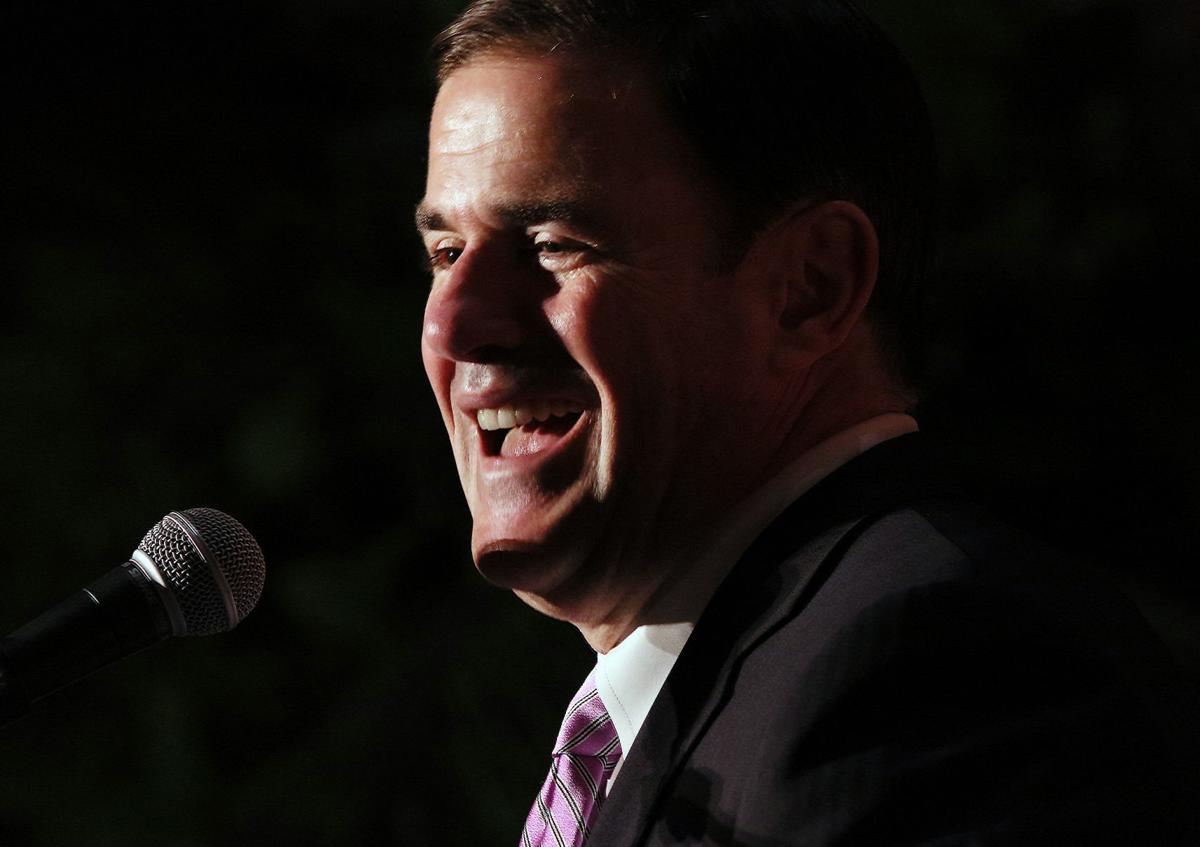PHOENIX — Calling an economic downturn “inevitable,” Gov. Doug Ducey is pushing back against demands by lawmakers from his own Republican Party to use a cash windfall to pay down debt.
The governor said Monday he is sticking to his demand that the extra $155 million being taken from Arizona taxpayers go into the state’s “rainy day” fund. He wants to get that account, currently in the $460 million range, brought up to an even $1 billion.
The amount in that fund has been virtually unchanged since Ducey became governor. It also is far below the statutory cap on what is formally known on the “budget stabilization fund” of 7 percent of general fund revenues, a figure that this year would be more than $700 million.
Some GOP lawmakers disagree with Ducey, saying the $155 million isn’t money the state earned, at least not through the normal political process of debating and setting tax rates.
Instead it’s fallout from the changes in federal tax law that lowered rates for most Americans. A byproduct of the state “conforming” its tax laws to to those changes is that some Arizonans paid higher taxes this year.
Senate President Karen Fann said her lawmakers think the best course of action is to use the windfall to pay down debt. She figures that would reduce the state’s annual debt obligation by about $24 million a year, money Fann said could be better used to provide state services.
Ducey said the plan is unacceptable to him.
On one hand, he said the Arizona economy is booming.
“But it would be irresponsible to not plan ahead for a rainy day,” Ducey said.
“And the beauty of a rainy-day fund is it gives you options in the downturn or the crisis,” he continued. “You can only pay down debt once.”
Ducey said he views it through the eyes of a business executive, which he once was.
“This is the way any responsible chief executive would look at the situation in the private sector,” said Ducey, the former executive of Cold Stone Creamery. “I should bring that same loving care to the public sector.”
The governor also brushed aside Fann’s contention that the state would be better served in the long run by using its newfound cash to fund state services instead of paying interest to some lender.
“We continue to pay down debt every day in this state,” he said.
That most notably includes the nearly $1 billion borrowed by selling off some state buildings —including the House and Senate buildings — under a lease-purchase plan to get them back. But the debt still remains at about $750 million.
Rep. Ben Toma, R-Peoria, who chairs the House Ways and Means Committee, said there may be a middle ground.
“I’m not one of the members of the House or the Senate, for that matter, that is basically a ‘hell no’ on putting money in a rainy day fund.”
But it’s going to require some give on the governor’s part.
“The only way I would support putting that money into the rainy day fund is if we got a big win on conformity reform,” Toma said.
That means adjusting the state income tax system for future years to ensure the state does not continue to collect the unanticipated windfall from federal tax reform and the resultant hit on Arizona taxpayers.
“In the end, for me, what’s more important is what we do in perpetuity, if you will, to offset the additional increases,” Toma said.
Even with that $155 million, that still leaves the state far short of the $1 billion that Ducey wants for the rainy day fund.
“Will we have the votes in House and the Senate to do that?” Toma said. “That’s going to be a tough lift.”





